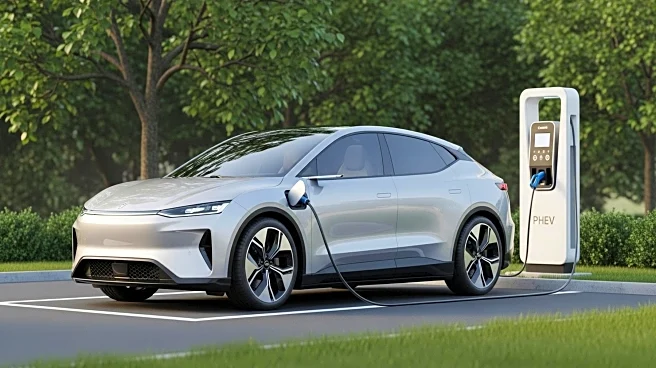What's Happening?
The debate over the utility and environmental impact of plug-in hybrid electric vehicles (PHEVs) continues to be a contentious topic among electric vehicle enthusiasts and environmentalists. Recent discussions have highlighted concerns that PHEVs may not achieve the environmental benefits they promise, as some users do not utilize the electric capabilities effectively. Research indicates that PHEVs can emit significantly more CO2 than official estimates if not used properly. However, proponents argue that PHEVs serve as a transitional technology, allowing users to experience electric driving while maintaining the flexibility of gasoline for longer trips. The debate is fueled by differing opinions on whether PHEVs should be included in electric vehicle sales reports and how they contribute to overall emissions reductions.
Why It's Important?
The ongoing debate over PHEVs is crucial for shaping future policies and consumer perceptions of electric vehicles. As governments and industries push for reduced emissions and increased adoption of electric vehicles, understanding the role of PHEVs is essential. If PHEVs are not used as intended, they may undermine efforts to reduce transportation emissions. On the other hand, they can provide a practical solution for consumers not yet ready to transition to fully electric vehicles. The outcome of this debate could influence regulatory policies, incentives, and the direction of future automotive technologies.
Beyond the Headlines
The discussion around PHEVs also touches on broader issues of consumer behavior, infrastructure readiness, and the pace of technological adoption. The effectiveness of PHEVs in reducing emissions depends heavily on user habits and the availability of charging infrastructure. As such, the debate highlights the need for comprehensive strategies that address not only vehicle technology but also consumer education and infrastructure development. The resolution of this debate could have long-term implications for the automotive industry and environmental policy.









